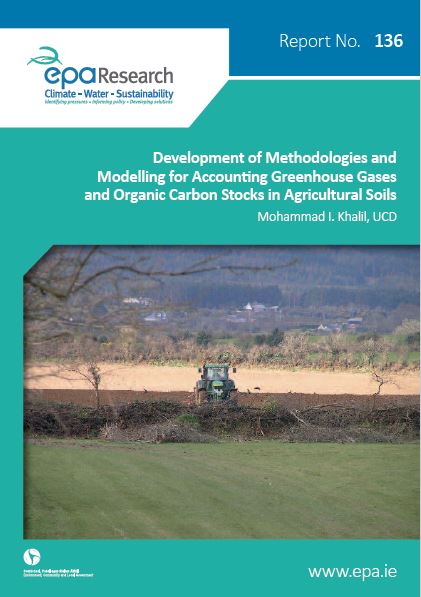Research 136: Development of Methodologies and Modelling for Accounting Greenhouse Gases and Organic Carbon Stocks in Agricultural Soils
Summary: This research fellowship progressed in three areas: (i) estimation of SOC stocks within major agricultural land uses; (ii) detailed model simulation of GHGs and SOC stock changes using the ECOSSE model; and (iii) the intercomparison of the ECOSSE, DNDC, and DailyDayCent process-based models calibrated to Irish conditions.

Agriculture and associated land-use changes contribute a significant portion to global greenhouse gas (GHG) emissions (N2O, CO2 and CH4), whereas soil organic carbon (SOC)
has enormous sequestration potential.
As an Annex-I country, the Republic of Ireland (ROI) submits annual national inventories of GHGs under the United Nations Framework Convention on Climate Change (UNFCCC), mainly following the Intergovernmental Panel on Climate Change (IPCC) default emission factors (EFs).
The development of methodologies and modelling of soil processes will profoundly enhance the value of national inventories, both in terms of more accurate reporting and in identifying mitigation policy options.
The current priority research focus is to substitute the IPCC default EFs by using country-specific ones, either through measurements and/or modelling, and to advance previous studies by reducing uncertainty in their estimates.
This research fellowship progressed in three areas: (i) estimation of SOC stocks within major agricultural land uses; (ii) detailed model simulation of GHGs and SOC stock changes using the ECOSSE model; and (iii) the intercomparison of the ECOSSE, DNDC, and DailyDayCent process-based models calibrated to Irish conditions.
https://www.epa.ie/media/epa-2020/publications/research/Research-136-Methodologies-thumbnail.JPG